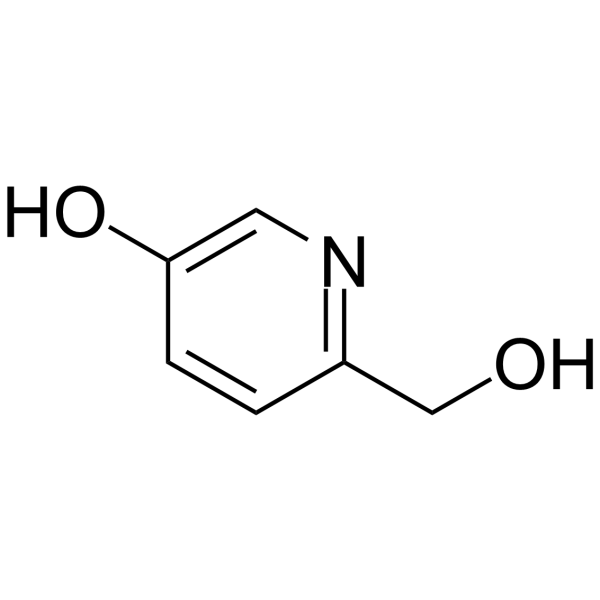
2-Hydroxymethyl-5-hydroxypyridine
CAS No. 40222-77-3
2-Hydroxymethyl-5-hydroxypyridine( —— )
Catalog No. M28306 CAS No. 40222-77-3
2-Hydroxymethyl-5-hydroxypyridine is isolated from the the matured, ripened and dried seeds of S. lychnophora.
Purity : >98% (HPLC)
 COA
COA
 Datasheet
Datasheet
 HNMR
HNMR
 HPLC
HPLC
 MSDS
MSDS
 Handing Instructions
Handing Instructions
| Size | Price / USD | Stock | Quantity |
| 50MG | 37 | Get Quote |


|
| 100MG | Get Quote | Get Quote |


|
| 200MG | Get Quote | Get Quote |


|
| 500MG | Get Quote | Get Quote |


|
| 1G | Get Quote | Get Quote |


|
Biological Information
-
Product Name2-Hydroxymethyl-5-hydroxypyridine
-
NoteResearch use only, not for human use.
-
Brief Description2-Hydroxymethyl-5-hydroxypyridine is isolated from the the matured, ripened and dried seeds of S. lychnophora.
-
Description2-Hydroxymethyl-5-hydroxypyridine is isolated from the the matured, ripened and dried seeds of S. lychnophora.
-
In Vitro——
-
In Vivo——
-
Synonyms——
-
PathwayOthers
-
TargetOther Targets
-
RecptorD3 receptor
-
Research Area——
-
Indication——
Chemical Information
-
CAS Number40222-77-3
-
Formula Weight125.13
-
Molecular FormulaC6H7NO2
-
Purity>98% (HPLC)
-
Solubility——
-
SMILESOCc(cc1)ncc1O
-
Chemical Name——
Shipping & Storage Information
-
Storage(-20℃)
-
ShippingWith Ice Pack
-
Stability≥ 2 years
Reference
1.Rudmann DG, et al. Epididymal and systemic phospholipidosis in rats and dogs treated with the dopamine D3 selective antagonist PNU-177864. Toxicol Pathol. 2004 May-Jun;32(3):326-32.
molnova catalog



related products
-
Erigeside I
Erigeside I is a radical scavenger.
-
Acetoacetic acid sod...
Acetoacetic acid sodium salt is a metabolite of non-esterified fatty acids, involved in the development of human diabetes.
-
Phosphocreatine diso...
Phosphocreatine disodium salt hydrate ishigh-energy phosphate reservoir in vertebrate and some invertebrate muscle; provides phosphate for ADP-ATP conversion.



 Cart
Cart
 sales@molnova.com
sales@molnova.com


